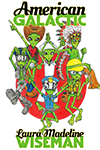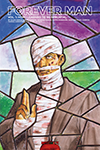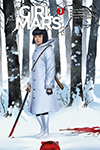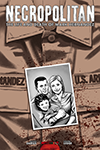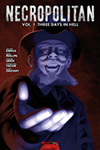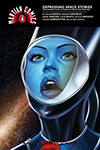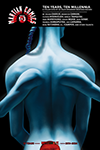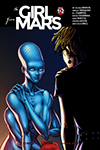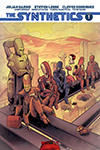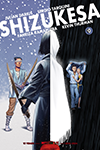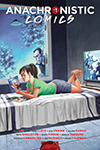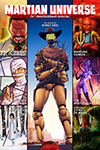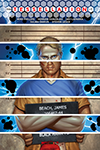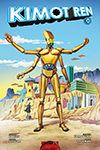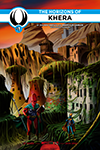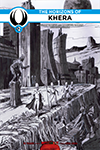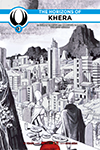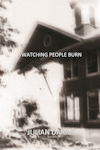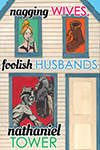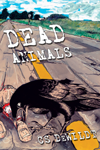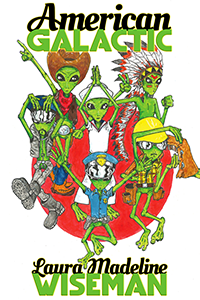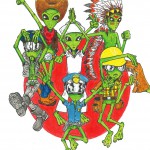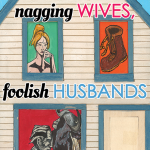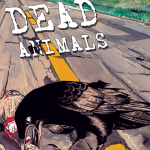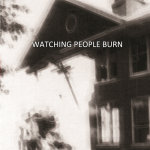Laura Madeline Wiseman: Let’s begin with your (writer) origin story.
CS DeWildt: It was a vaginal birth, no complications. I hit the ground, twisted an ankle, and joined the race. Books were always there, and I loved the library more than almost anywhere else. My ears began to prick up in English class in a way they just wouldn’t in algebra. I read enough and listened enough and practiced enough to eventually be able to put sentences together in a way that was pleasing to people. I loved sharing my words, always. I thought I was a poet and then convinced myself I wasn’t before realizing no one is anything else. I chose to sling words like rocks, like a dealing David, and I found words to be the most economical means to slay any beast. I kept at it until I gave up. I tried to be a man of science and crawled into a Kentucky cavern for a few years. But when I crawled out, I was reborn in the ink. I was reborn into my life as a husband and then a father. I’ve been hustling my stories ever since.
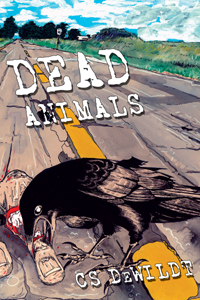 LMW: Tucson, the Southwest desert and cites, are almost characters in your second book Dead Animals, released from Martian Lit. Talk about your interest in place.
LMW: Tucson, the Southwest desert and cites, are almost characters in your second book Dead Animals, released from Martian Lit. Talk about your interest in place.
CSD: Tucson… I moved to Tucson in 2007. Growing up in west Michigan, I always knew I wanted to get someplace else. I didn’t care where. The only real criterion was that it had to be a place where I wouldn’t have to get up an hour early for work to dig my car out of the snow, or hike through the snow for a telephone after putting my car in the ditch. I visited Arizona for the first time in the late nineties and it was like coming home. I loved the heat, the full blast of the AC wherever you went — there’s a manipulated, perverted decadence to desert living, but it’s dulled by the dust and easy to overlook. But it was the landscape and life that really took me: the saguaro dotted Catalina mountains, the patchy, rough desert scrub hiding all sorts of hardened life, coyotes, scorpions, and rattlesnakes who refused to be displaced. But the best thing I think is that so many of the people here are from somewhere else, sun-baked malcontents looking for something else. We sweat and forget why we came until the relief of the summer monsoon. The desert floods and comes back to life and we think, if this isn’t it, it’ll do until we find it.
LMW: Dead Animals grapples with issues of violence to the self, to others, and to the psyche. For example your story “A Favor Returned” is chilling and brutal, haunting in an almost Edgar Allen Poe manner. Discuss your interest in the theme of violence and how one goes about depicted a dangerous and rugged world in the service of story and craft.
CSD: I enjoy violent conflict. I am drawn to it, yet it’s one of my greatest fears. I love the spectacle of humankind wrestling with its past. We inherit a nature born much earlier, when the subtle mistaken alteration of a gene proved successful. Now think about the violence in nature, killing for food, dominance displays turned fatal encounters, territory disputes with your species and others, all of these can be reduced to a simple philosophy: will I hurt you to get what I want? Food, a mate (or several of them), range, resources; how far will I go to improve my odds of my genetic succession? Of course if this were the rule we’d all be on horseback trying to conquer the Great Wall, but it’s not. We moderns crave civility so deeply that we’ll wash the streets in blood to get it. And once we have it we tell ourselves a new story, not that the ends justified the means, but that the means and ends were one and the same. I like this story. It allows me to wave to my neighbor instead of burning their house down, to yield to pedestrians though I’m hungry and can see the McDonald’s drive-thru just beyond the crosswalk. It lets me expend my precious energy helping a friend move apartments, sacrificing my time and risking my health as we maneuver a hide-a-bed down three dark flights of narrow stairs. Most people enjoy the story, and they should, it feels good to let our guard down after millions of years. But to pretend that the other story is over, or more dangerously, never existed, is irresponsible. The old story is one that served us well for a very long time, a story we once loved but have told ourselves we’ve outgrown. Maybe we truly will outgrow the need for violence one day, and while culturally it may seem to be the case, our genes, though malleable, crawl along a much longer timeline. Some of them still crave that old story and they will fight to have it told. Violence itself isn’t good or bad or desirable or out of fashion or abhorrent; it’s a part of a natural repertoire of behaviors that have allowed us to stand atop the mountain and survey the landscape with a special brand of loathing for everything below. This is lovely, until the day we need the old story, the one that tells us how to climb back into the valley. The first ones down won’t be the fastest or most surefooted, it will be the ones thrown from the top by those who remember the old story. And then one day it will be time to climb back up and we’ll find that cooperation is again the best strategy, and then again, it always will be the best strategy, always was the best.
Until it isn’t.
I think in terms of the art, the author owes it to themselves to be as objective as possible when crafting a piece. I struggle with writing the story my heart wants to write and the story I want my heart to write. I, and many others, love to keep our demons in chains when really they need to be kicked out, set free, repeatedly maybe, but it does a better service to the story, to ourselves, and to the reader, when we let the story speak freely, when we truly try to rid ourselves of the poisons we love to nurture. Again, I enjoy violent conflict, but I don’t sit down at the keyboard and say “Time to write a violent story.” I try to be honest about the story I want to tell, which to me means, don’t over think it. My characters are often surrounded by violence or find themselves thrust into violent situations. I make it my job to find something beautiful in the horrible, something soothing beneath the terrifying, even if it’s just in the words I choose. I’m a fan of the underdog and I try to find poignancy in the filth. It’s only after I get really dirty that I can appreciate all the clean things in my life.
LMW: As a poet, I’m interested in how one puts together a collection of poems compared to how one puts together a book of poems. Short story collections, too, can be arranged in particular ways (e.g. the best hits, linked stories, a composition novel, etc.). Talk about your process in arranging and finalizing the stories in your new book Dead Animals.
CSD: As far as finalizing, I still have regrets. There are a couple of pieces I feel should have made the cut and one in particular that I wish I’d left out. As for the order, I didn’t think too much about it. I did intentionally lead off with “The Bull,” a strong piece of traditional storytelling I didn’t want to bury, and that I thought would have the best chance of hooking the reader. It wasn’t until later that someone commented on the order of the collection, saying they liked seeing that it wasn’t chronological. Chronological order was something that never occurred to me. I just went with what felt good, tried to balance the light and the dark, to give the reader a gulping breath of air before diving back into the sludge.
LMW: Let’s wrap up with some quick questions. What is inspiring you these days?
CSD: Reading, reading, reading. I find I am so much more inspired (and productive) when I’m reading something good. Right now it’s Flannery O’Connor’s Wise Blood. I love her short stories and consider her a major influence, but I’ve never read her novels!
LMW: How are you trying to get better as a writer?
CSD: Reading as widely as I can. That’s all any of us can do I think.
LMW: Number of short story collections you own?
CSD: 20ish?
LMW: Number of short story collections you’ve read?
CSD: 30ish?
LMW: Ways you promote and serve other chapbook writers?
CSD: Facebook, retweet, buy their stuff, review their stuff, pimp their stuff.
LMW: Where you spend your book earnings?
CSD: Earnings. Good one. I made twenty bucks at a reading last year and I bought more books and a box of Girl Scout Thin Mints.
LMW: Residence?
CSD: Tucson, AZ.
LMW: Job?
CSD: Corrupter of Youth.
LMW: Education?
CSD: “Some. Here, there. You know.” –Travis Bickle
LMW: Bio?
CSD: CS DeWildt is a liar. He wants to hurt you. Please visit him here (csdewildt.com) and buy his books here (http://www.amazon.com/CS-DeWildt/e/B00DL3K40Y/ref=sr_tc_2_0?qid=1395450299&sr=1-2-ent)

